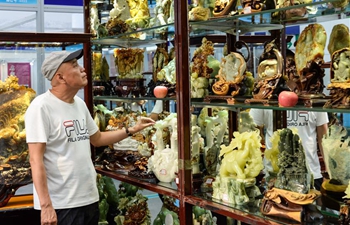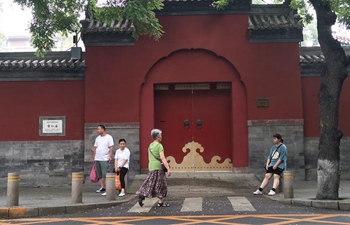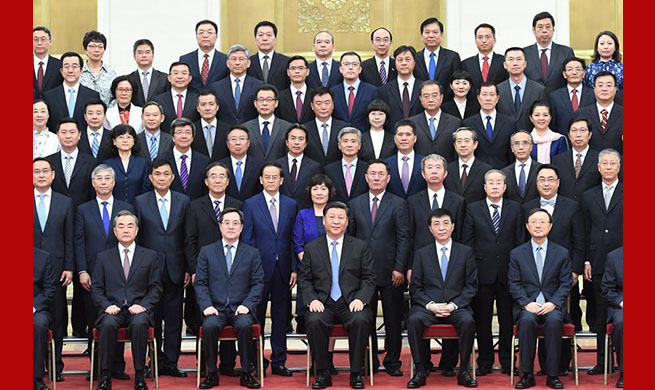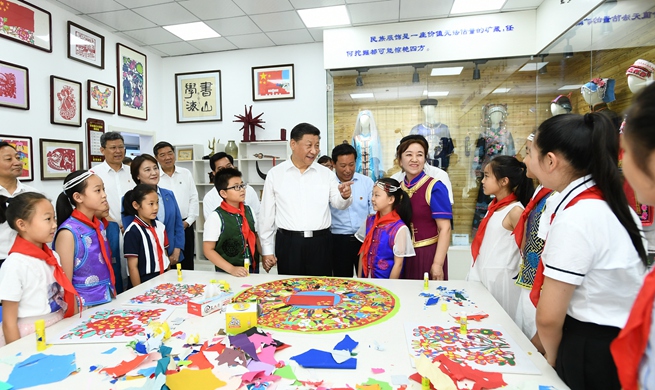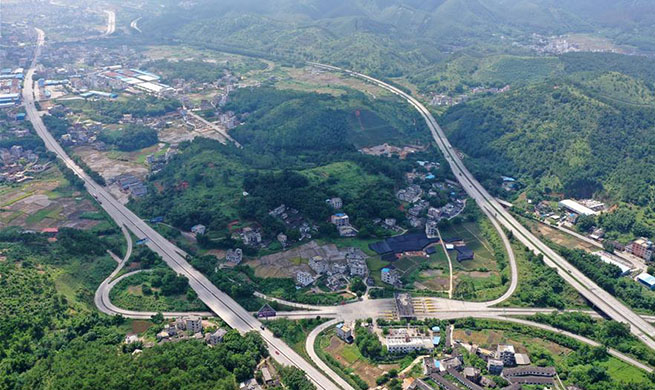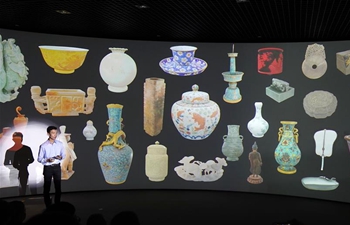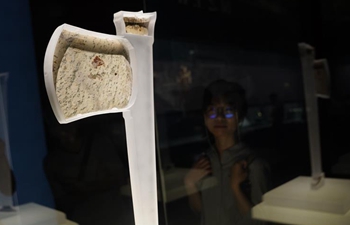WASHINGTON, July 17 (Xinhua) -- Trade tensions have so far not significantly affected global current account imbalances, but are weighing on global investment and growth, a chief economist of the International Monetary Fund (IMF) said Wednesday, urging all countries to avoid policies that distort trade.
"Recent bilateral trade actions have had no discernible impact on the global imbalances as external imbalances reflect macro policies that affect aggregate saving and investment," Gita Gopinath said at a press conference about the IMF's newly released External Sector Report, an annual assessment of currencies and external surpluses and deficits of major economies.
The economist highlighted the impact of trade tensions, noting that higher tariffs have been associated with increased prices for consumers and have been weighing on global trade investment and growth, eroding confidence and disrupting global supply chains.
"It is imperative that all countries avoid policies that distort trade," Gopinath said.
Following the global financial crisis, overall current account surpluses and deficits fell sharply from about 6 percent of global GDP in 2007 to about 3.5 percent in 2013. Since then, global current account imbalances have declined slightly to 3 percent of world GDP in 2018, the report showed.
Countries with excess current account deficits, like Britain and the United States, should adopt or continue with growth-friendly fiscal consolidation, while those with excess current account surpluses, like Germany and South Korea, should use fiscal space to boost public infrastructure investment and potential growth, Gopinath said.
The IMF chief economist said both deficit and surplus countries should focus on tackling the underlying macro and structural sources of imbalances instead of resorting to distorted trade actions, calling for "carefully tailored and sequenced structural policies."
"Countries should work jointly toward reviving liberalization efforts and strengthening the rule-based multilateral trade system that has served the global economy well over the past 75 years," Gopinath said.




